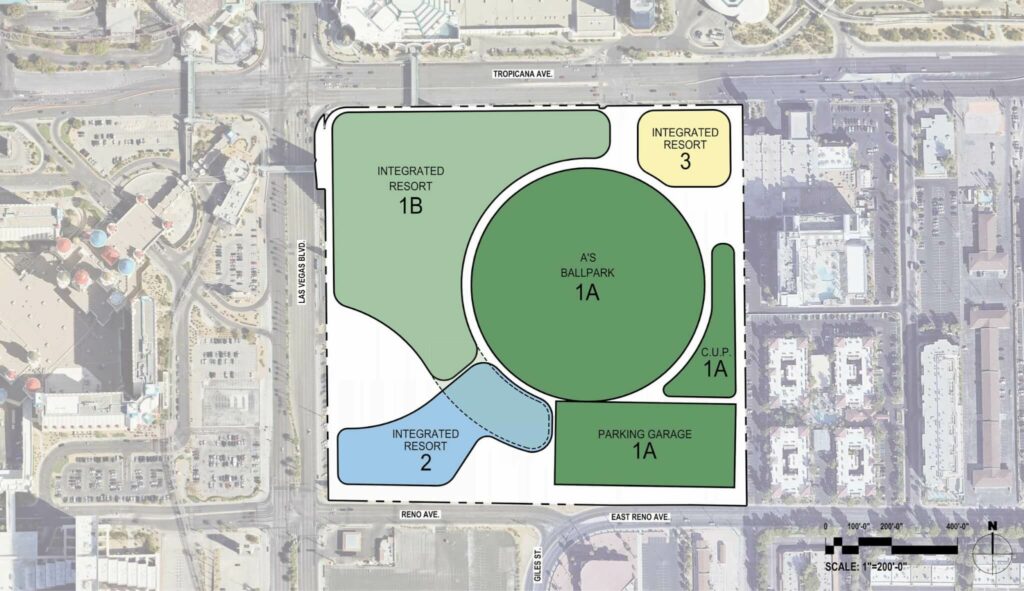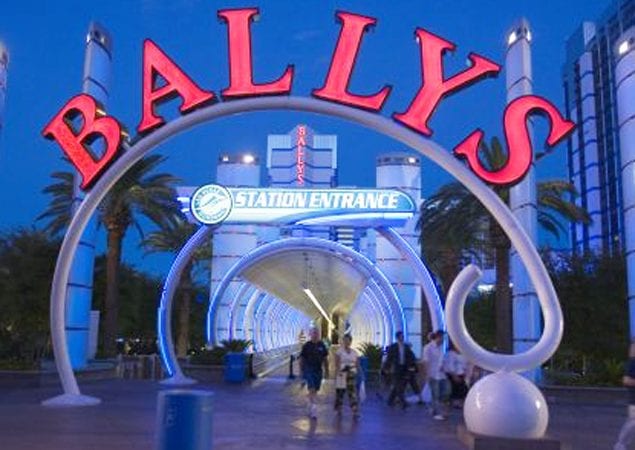
Bally’s Corporation has recently finalized the sale of all of its Asia interactive business operations, which is supposed to be a strategic move that would allow the company to refocus on its USA and European ventures. Most importantly, Bally’s will spend the next several years building out Bally’s Las Vegas around the new Oakland Athletics stadium on the Las Vegas Strip.
In other news, Bally’s chairman Soo Kim, bolstered by the success in Rhode Islands where Bally’s has a monopoly, suggested that there could be less opposition from the legislature if the players would be offered an online way to place bets on games that still physically take place at the licenced brick-and-mortar casino.
All this is aligned with a common goal of Bally’s to focus more on the American market, most importantly Vegas but also the other regulated state markets and those that might open up in the future, while leaving the failing Japan market behind.
The Carved-Out Business, the Bally’s segment that includes brands such as Vera&John, CasinoSecret, Inter Casino and Yuugado that are all primarily popular in Japan, is no longer a focus for Bally’s, though the company still intends to keep the intelectual property. The financial health of the company won’t be too affected as there’s just a small decline in EBITDA expected, courtesy of strategic cost reductions.
Bally’s intends to refocus its capital and resources on its North American and European ventures, which is why the not-very-profitable Asian businesses had to go. Robeson Reeves, Bally’s CEO, said that the yen’s devaluation is affecting consumer engagement in Japan.
Back in 2021, yen was trading at 104 to the US dollar, and by June 2022 it was below 130 to the dollar, a low not seen in decades. The surging fuel costs and a sharp rise in prices have made Japan a very tricky market to operate in. While yen’s decline can not be seen only negatively, especially not for Japan, it does cause a lot of problems for American companies such as Bally’s, hence the exit.

In spring 2028, the new Las Vegas property is set to open together with the Oakland Athletics’ new baseball stadium. Bally’s Las Vegas will surround the stadium as the stadium is occupying nine of the site’s 35 acres. Phase 1 is to include casino, hotel tower and select amenities, and is supposed to be completed at the same time when the new stadium is opened. This is giving Bally’s plenty of time to develop the property at the same time with a much more demanding project, the ballpark.
The casino will have 90,000 sqft of gaming space with 1,500 slots and 75 casino tables, plus a sportsbook and a poker room. The hotel towers would be built in three phases and would total 3,000 rooms, which is twice the number Tropicana used to have.
Bally’s Las Vegas and the new Oakland A’s stadium is probably the largest and most important casino construction site until the end of this decade, especially as the battle to get to this point has been long and uncertain. In a sea of doubtful business decisions, Bally’s has certainly hit gold with this move to demolish Tropicana, have the A’s relocate, and build a casino resort around the stadium.
This will be the second Bally’s casino in Nevada as the company also owns a Lake Tahoe property. Overall, Bally’s owns and manages 15 casinos in 10 states, with 15,000 slots, 580 tables, and 3,800 hotel rooms. Among these are the Chicago and Kansas City casinos, and a golf property in New York.

State legislatures weren’t too keen on passing online casino bills that would allow new markets to open up recently, but Bally’s chairman Soo Kim has a proposed solution. He believes that there would be less opposition to legalizing online casinos in states like New York and Illinois if there would be only live dealer games and nothing else.
Live dealer games are casino games that are accessible online, that stream real brick-and-mortar casino action, usually from a studio, with a live human presenter. The most popular games are blackjack, roulette, baccarat and craps, with other live dealer games in existence too.

Soo Kim’s idea that live dealer games could face less opposition is certainly coming from experience in Rhode Island, where Bally’s has a monopoly on gaming through two casino properties and an online app. The state only allows online table games with live dealers that physically take place at Bally’s Twin River Lincoln, one of the two Rhode Island properties.
Allowing players to place bets on games that are physically taking place in licenced brick-and-mortar casinos in the respective state certainly sounds like a reasonable thing to do. If players can place bets on action in a brick-and-mortar casino, why not be allowed to do so remotely?
However, this approach only ever benefits the owner of the brick-and-mortar casino and doesn’t do much for the legislature in the state as a whole and for the opening of the market to competition. It does the opposite – it ensures the monopoly of brick-and-mortar casinos in online space as they wait for the market to open up to online slot machines.